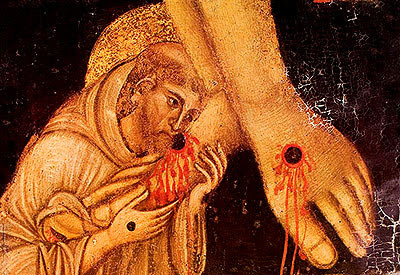To Remember the Dissident
The English philosopher, writer and composer, Sir Roger Scruton, died yesterday after a long period of ill health; he was 75 years old. Scruton was one of the finest philosophers England has produced, and he has been a defender of conservatism, but also of beauty and the role of faith in human life. He was a man orientated towards the transcendent, and this made him unusual among many modern philosophers whose intellectual reach is often limited to the individual and society. As you would expect, he had many enemies - his opinions and annoying habit of asking pointed questions about modern life and ideologies did not endear him to the establishment or an academe dominated by the Left.
Far from being an armchair philosopher, he was active in public life and proved his credentials in the role he played resisting communism, supporting dissidents behind the Iron Curtain and travelling there to support underground educational initiatives there, smuggling books, giving lectures and helping students there gain degrees in Cambridge. His movements were monitored; he was considered dangerous to the ideals of socialism, a threat those on the left today still feel. Following the fall of communism, he was honoured for his work by Vaclav Havel among others.
In terms of his philosophy, his expertise was initially in the area of aesthetics in which he championed beauty. He argued that beauty had to be restored to the arts. He went further and said that faith in God effected the nature of art, it makes it more beautiful. He also wrote on other topics including conservatism, sexuality - which proved controversial, and the nature of totalitarianism, which he saw was growing in the West.
Scruton was a Christian philosopher, not in the sense that his philosophy was confined to Christian categories, but rather his philosophy led him to Christianity. He was a practising Anglican - organist at his parish church. He argued for faith, that religion was important in society, it offers a necessary function in socialisation. In an argument with Richard Dawkins, he offers some interesting thoughts on religion, from which this passage is worth noting:
"All faith depends on revelation, and the proof of the revelation is in the peace that it brings. Rational argument can get us just so far, in raising the monotheistic faiths above the muddled world of superstition. It can help us to understand the real difference between a faith that commands us to forgive our enemies, and one that commands us to slaughter them. But the leap of faith itself — this placing of your life at God’s service — is a leap over reason’s edge. This does not make it irrational, any more than falling in love is irrational. On the contrary, it is the heart’s submission to an ideal, and a bid for the love, peace and forgiveness..."
Besides his philosophy, Scruton was an novelist and composer - he wrote two operas: The Minister (1994) and Violet (2005). He wrote a number of works of fiction based on his philosophy and experience. Foremost among them is his 2014 novel, Notes from Underground which draws on his experience behind the Iron Curtain, and, more controversially, The Disappeared (2015) which deals with trafficking, child grooming and issues of immigration.
Scruton is a writer and philosopher who is worth getting to know; he is, in a sense, a dissident in that his work rows against the leftist-secularist tide which now forms the establishment in the West. No more than any of us, he was not perfect, but his work, and the questions he asks, awkward as they be for many today, must be asked and answered. I have no doubt that his legacy will be a rich one and scholars will draw on his work, insights and wisdom as time goes on. Indeed, I get the sense the way things are going, he may well form future generations in the way of dissent as the West falls again.
Last night, reading over the many tributes being paid to the man, one thing was notable - the personal testimonies and gratitude of so many people not only for his work, but for the effect he had on so many people; those who met him and knew him, those he helped, those whose lives he touched in many ways. For many his passing is not merely the loss of an eminent philosopher, but rather the loss of a loving friend, a kind gentleman, expressed with genuine affection. That in itself is an insight to the man and his life.
May he rest in peace.
Last night, reading over the many tributes being paid to the man, one thing was notable - the personal testimonies and gratitude of so many people not only for his work, but for the effect he had on so many people; those who met him and knew him, those he helped, those whose lives he touched in many ways. For many his passing is not merely the loss of an eminent philosopher, but rather the loss of a loving friend, a kind gentleman, expressed with genuine affection. That in itself is an insight to the man and his life.
May he rest in peace.



Comments
Post a Comment